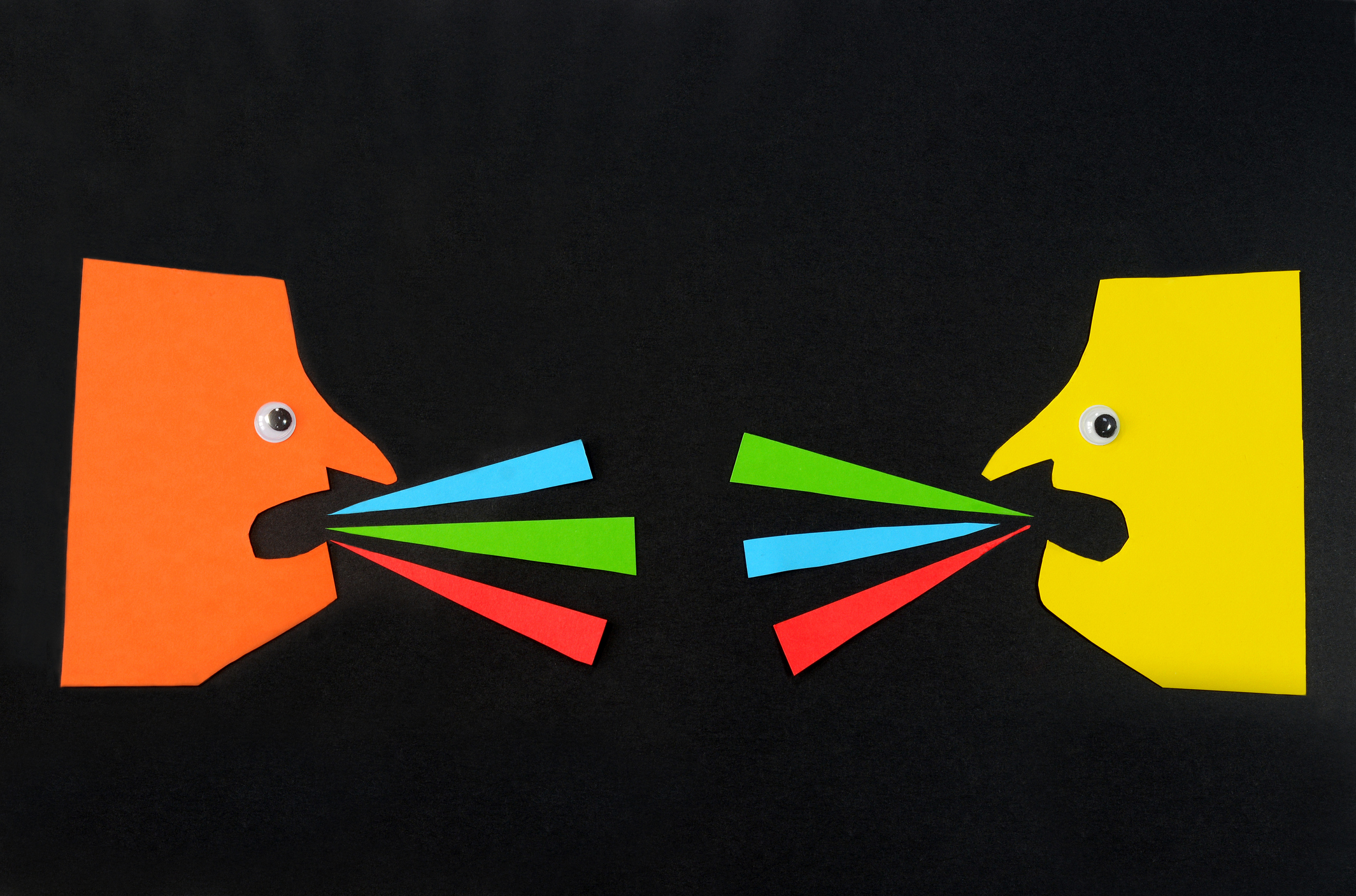Editor’s Note: Strong relationships are at the core of a happy life, but sometimes, dealing with the people in our lives is tricky. That’s why Thrive Global partnered with The Gottman Institute on this advice column, Asking for a Friend. Every week, Gottman’s relationship experts will answer your most pressing questions about navigating relationships—with romantic partners, family members, coworkers, friends, and more. Have a question? Send it to [email protected]!
Q: My boyfriend and I rarely fight — and when we do, it seems to always come back to the same issue. I’m a more social person than he is. I like to go to occasional parties together and sometimes host friends at our place. He never wants to go to parties and and doesn’t like to host. We’ve spoken about it, but it continues to come up and be an issue, especially when I ask him to go to parties with me and he refuses. How do I keep this argument from resurfacing?
A: This is a great question. You’re describing the frustration and challenge of dealing with an issue in a relationship where partners have very different perspectives and preferences about something that’s important to one or both of them. You may be thinking something like, “Really? What’s the big deal with having friends over or going to a party?”
Since you don’t fight that much, the ongoing pushback from your partner over socializing could leave you feeling confused and frustrated. How could something so basic and reasonable, you might wonder, keep showing up as an issue?
You’re not alone. We’ve learned from the Gottman research that this is surprisingly common. In fact, there probably isn’t a couple on the planet that doesn’t have some version of this question to grapple with at some point in their relationship.
It turns out that of all the problems that couples identify in their relationship, about seven out of 10 of those problems will fit the category we call perpetual problems. Every couple has differences in how partners think and feel, what they prefer, and in the endless number of ways they may come from another perspective. Our histories, psychology, experiences, and beliefs all contribute to these differences.
Psychologist Dan Wile says, “When choosing a long-term partner, you will inevitably be choosing a particular set of unresolvable problems.”
The remaining 30 percent of problems couples have fall in the category of solvable problems. This means that the couple only needs to deal with it once, then they are done.
Partner One: “Where do you want to go for dinner tonight?”
Partner Two: “Let’s do Italian.”
Partner One: “Okay.”
Simple right? No, not really, because what is solvable for one couple may be a perpetual problem for another couple. While all couples have perpetual problems, couples are different in what those perpetual problem are.
Partner One: “Where do you want to go for dinner tonight?”
Partner Two: “Let’s do Italian.”
Partner One: “Again? Why don’t you ever ask me what I would prefer first? You know I don’t like Italian food. You always do this, you only think of yourself!”
Let’s go a bit deeper with perpetual problems. We can get a measure of the degree of stuckness in the relationship when differences in a specific area create ongoing distress in the relationship. This goes far beyond minor irritation.
We identify that type of problem as a “perpetual gridlocked issue.” Perpetual gridlocked issues seem impossible to talk about, always ending up in an unmovable impasse.
With our gridlocked couple that argued about where to go for dinner, on closer examination we would undoubtedly uncover deeper issues that the dinner question represented.
Partner One is thinking, “Please ask me what I prefer. In my family nobody ever asked what I wanted. Just once I want to feel cared for.”
Partner Two is thinking, “Here we go again. Things are never what they seem. I am asked a question, and it’s my fault when I answer. Things fall apart just like it always did in my crazy alcoholic family. Starts off one way, and ends just the opposite.”
Research on stable relationships points to the importance of getting to the underlying issues underneath perpetual gridlocked problems before trying to problem-solve. How problems are defined sets the stage for how to approach the issue.
Step One
Define whether the problem is a solvable problem, a perpetual problem, or a perpetual gridlocked problem. You can learn more about the difference here.
Step Two
If the problem is perpetual, define the problem as “Differences we have in… preferences, thoughts, beliefs, or feelings.”
Step Three
Come up with a temporary solution to manage this ongoing difference once again. If the problem is a perpetual gridlocked issue, go to Step Four.
Step Four
Stop problem-solving and any attempts to convince the partner of your side. Ask each other questions that get to what this issue means. What are the underlying needs here? Explore why this issue is important. If you take enough time to listen to each other then you may try to go back to step three to come up with a temporary compromise. Remember, this specific issue is likely to resurface over and over, because preferences are fairly constant and they are neither good or bad, just different.
This type of communication exercise works best if you take turns as speaker and listener. Each partner stays in the listener role until the speaker feels understood. Try to get as complete a story as possible before switching to express your side.
A thought: It’s just as likely the question could have been, “My girlfriend and I rarely fight, and when we do, it seems to always come back to the same issue. She is a more social person than I am. I prefer more time for us to be together. We’ve spoken about it, but it continues to come up and be an issue, especially when she wants to, once again, go out or have people over. I don’t really enjoy parties that much. How do I keep this argument from resurfacing?”
There are always two sides to every conflict and both are valid. So does this mean that you just have to accept these differences and not expect any change at all? Not exactly. In the studies on happy, long-term relationships, partners do come to accept their differences and react less strongly over time. However, this acceptance only comes after partners communicate understanding and respect for each other’s core needs.
With that deeper understanding, hopefully it will be much easier on occasions for you both to accommodate each other. “I know this is important to you and because I love you I’m willing to go along with this.” Compromise is temporary in that it is made on a case-by-case basis, when it is really important to one of you. Understanding that it is normal in healthy relationships to have to revisit the issue from time-to-time helps.
Your boyfriend will likely never be the social person that you would ideally hope for and vice versa. However, that isn’t to say that he can’t make adjustments and on specific occasions that are important to you join in social activities, and do so gladly. The mindset is, “Since this is important to you, and you are important to me, I can do this.”
Likewise, there will be occasions to honor your boyfriend’s core needs in this area when it is important. “I can see why he doesn’t want to have friends over this weekend, he has been feeling stressed and overwhelmed with work. Maybe we can spend some quiet time together and I can set up another date with our friends.” A good tip is to ask each other, “On a scale of 1-10, how important is this to you?” This helps couples sort through on any given occasion what is at stake for the other person.
It is not about winning or losing — it’s about loving.
Follow us on Facebook and sign up for our weekly newsletter for all the latest news on how you can keep Thriving.
More from Asking for a Friend here.


